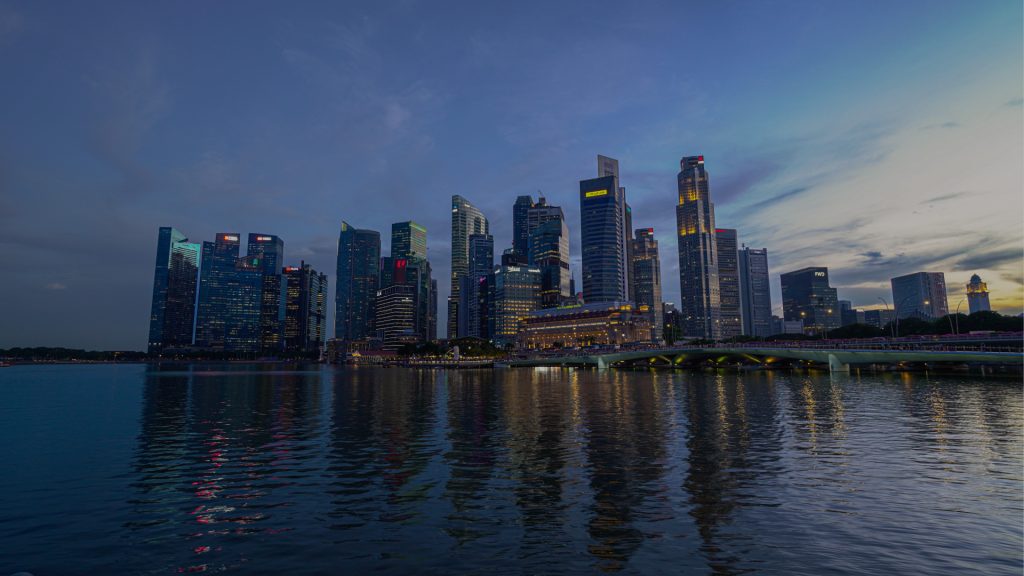Singapore’s Continued Dominance as a Global Trade Hub in 2024


The city-state’s ability to facilitate international trade effectively and efficiently is underpinned by a combination of factors that contribute to its prominent role in global commerce. This article explores why Singapore remains a leading trade hub in 2024 and examines the key factors driving its success. Below we list the key factors enhancing Singapore’s role as a trade hub
Singapore’s strategic location at the crossroads of major shipping routes in Southeast Asia provides unparalleled connectivity between the East and West. Situated along the Singapore Strait, one of the world’s busiest maritime passages, Singapore serves as a crucial link for international trade. This geographic advantage allows the city-state to efficiently handle a significant volume of global trade and serve as a central hub for shipping and logistics.
Singapore’s port facilities are among the most advanced and efficient in the world. The Port of Singapore is renowned for its high throughput, state-of-the-art technology, and seamless operations. Key features include:
Singapore’s logistics and supply chain infrastructure is designed to support global trade with efficiency and reliability. Key components include:
Singapore’s business-friendly environment is a significant factor in its continued success as a trade hub. The city-state offers:
Singapore is at the forefront of integrating innovation and technology into its trade and logistics sectors. Key advancements include:
Singapore’s political and economic stability is a critical factor in its attractiveness as a trade hub. The city-state offers:
Singapore’s global connectivity extends beyond its physical infrastructure. The city-state is:
In 2024, Singapore’s position as a global trade hub is reinforced by its strategic location, world-class port facilities, robust logistics infrastructure, business-friendly environment, and commitment to innovation. The city-state’s ability to facilitate international trade efficiently and effectively continues to attract global businesses and reinforce its role as a key player in the global economy. As global trade dynamics evolve, Singapore’s continued dominance as a trade hub underscores its importance in shaping the future of international commerce.
Latest articles
Tool and strategies modern teams need to help their companies grow.
Invite users to stay updated with exclusive insights and market trends by subscribing to the newsletter.
InProved Pte. Ltd. (“InProved”, UEN 201602269C). InProved is regulated by the Ministry of Law (“Minlaw”) and holds a Precious Stones and Precious Metals license for dealing in bullion products (PSPM License PS20190001819). For additional legal and privacy related information related to InProved, please visit are terms and conditions.
Our products and services are only available to Accredited Investors. Investing in bullion involves risk, and there is always the potential of losing money. Certain bullion products are not suitable for all investors. The rate of return on investments can vary widely over time, especially for long-term investments. Past performance is no guarantee of future results. Before investing, consider your investment objectives and any fees and expenses that may be charged by InProved and any third-party stakeholders. The content provided herein is for informational purposes only and is not investment or financial advice, tax or legal advice, an offer, solicitation of an offer, or advice to buy or sell or hold bullion products. This material has not been reviewed by the Minlaw.
Statements made are not facts, including statements regarding trends, market conditions and the experience or expertise of the author or quoted individual(s) are based on current expectations, estimates, opinions and/or beliefs. Opinions expressed by other members on InProved should not be viewed as investment recommendations from InProved. Endorsements were provided at the request of InProved. InProved is not affiliated with and does not purport to own or control any third-party content linked herein.
Copyright © 2025 InProved Pte Ltd (UEN 201616594C, PSPM license PS20190001819)
